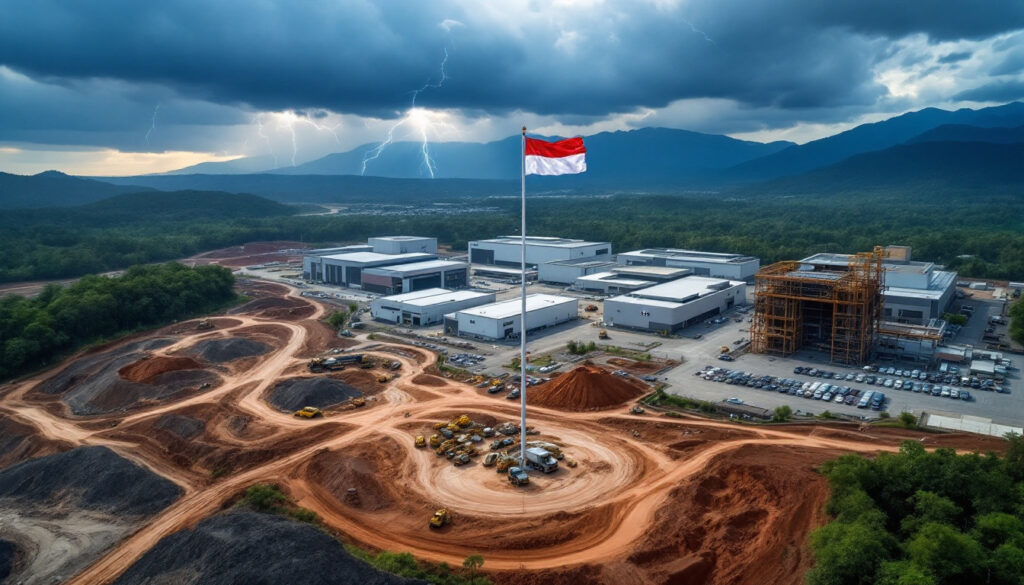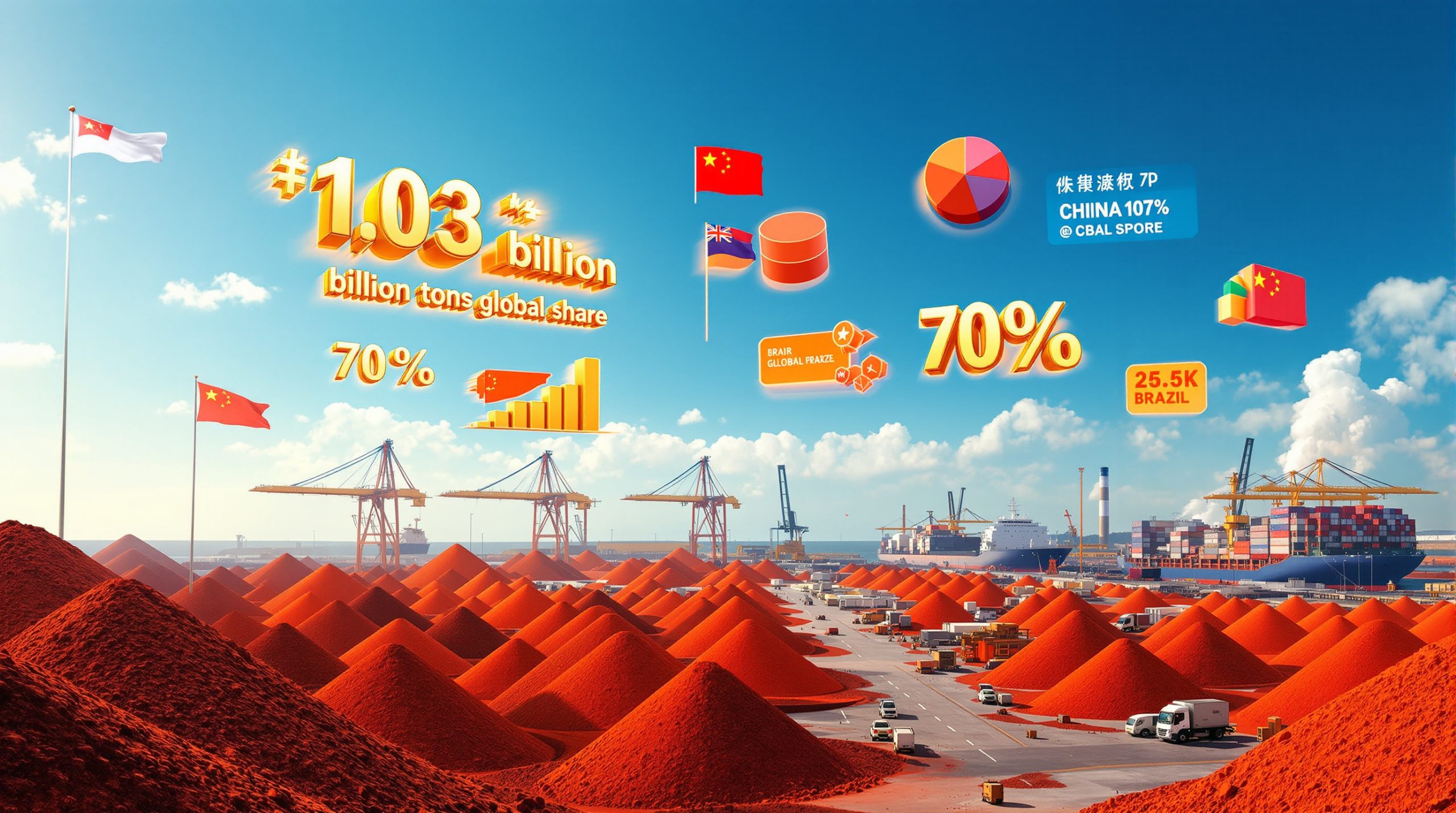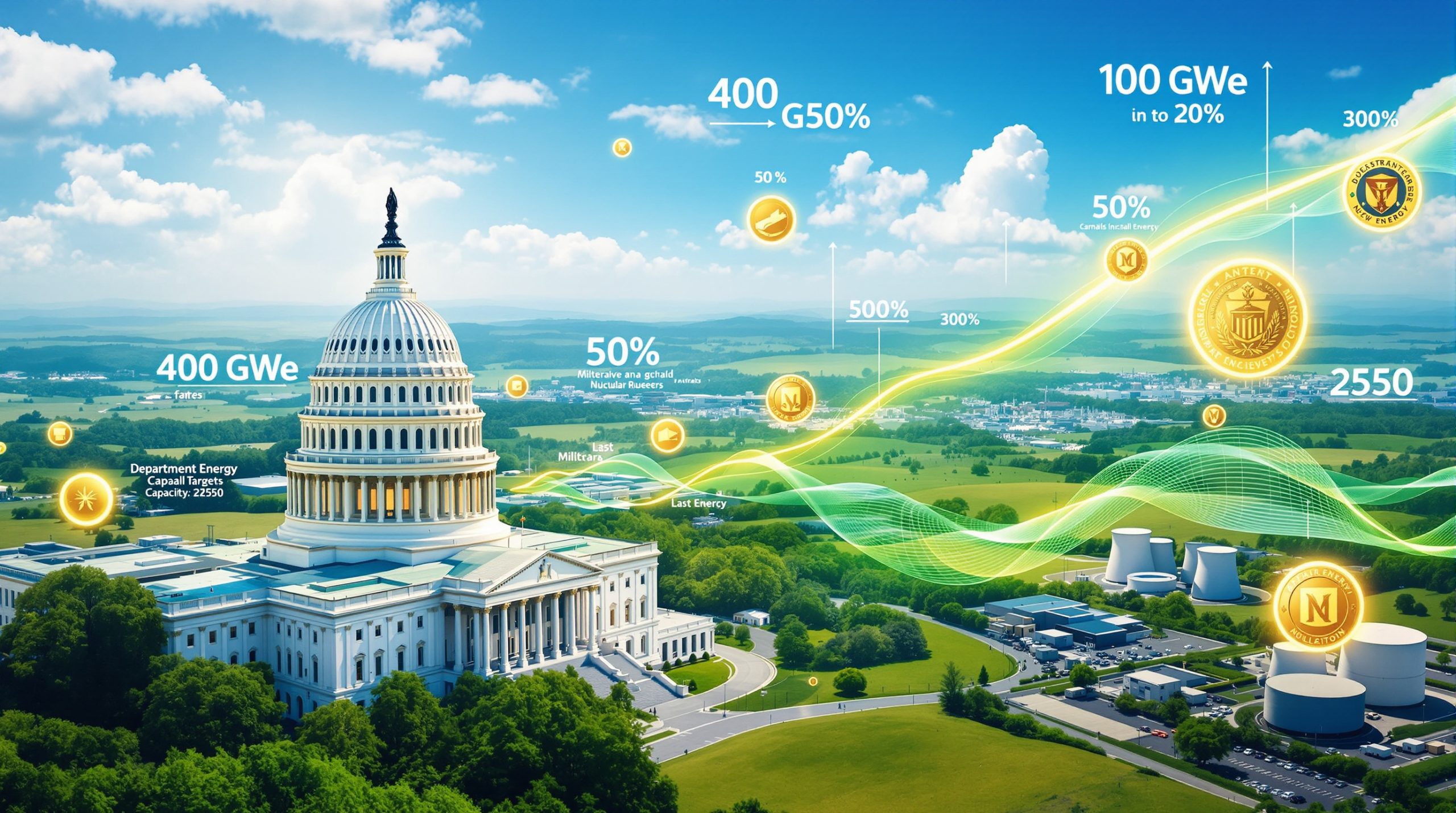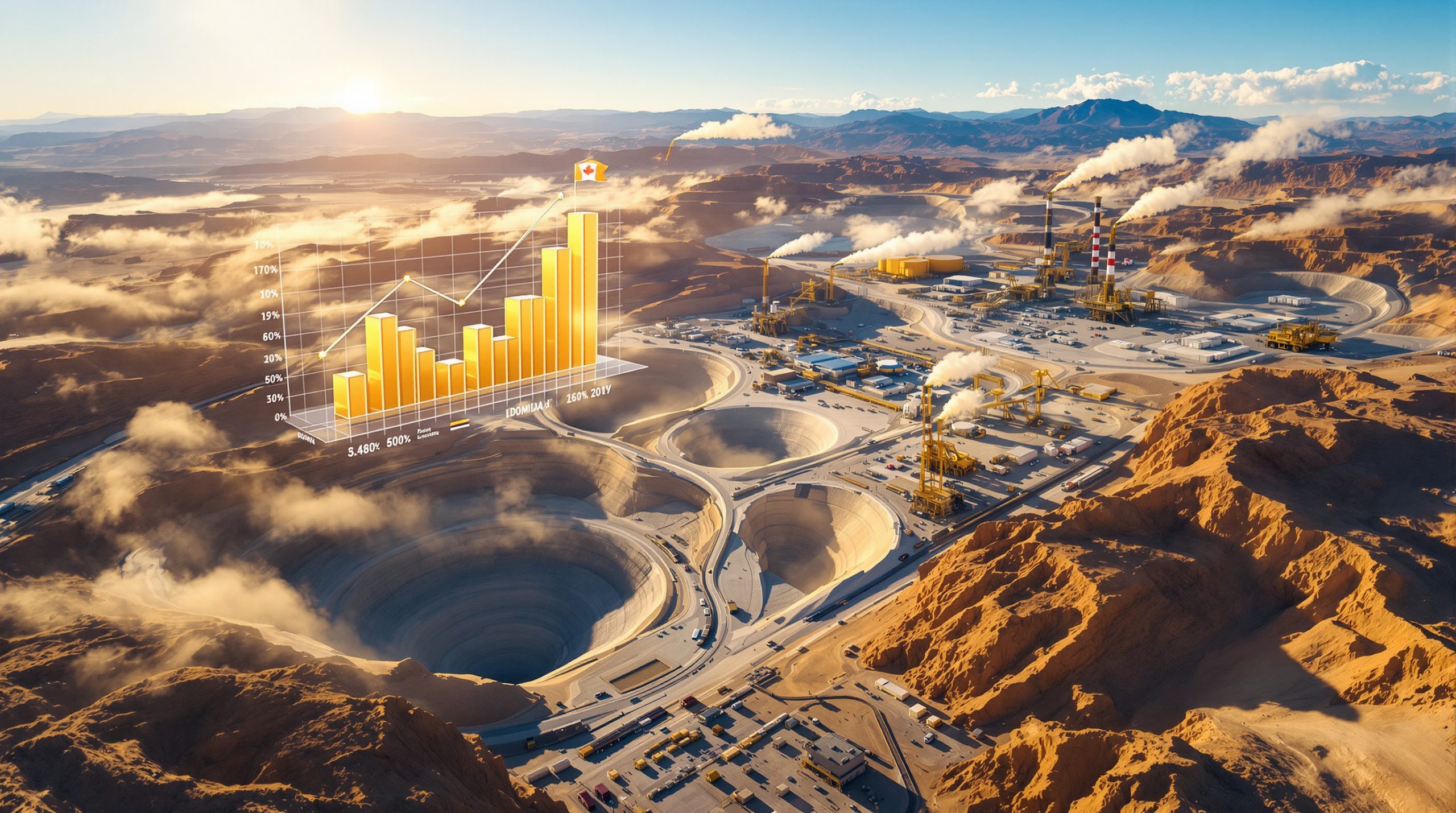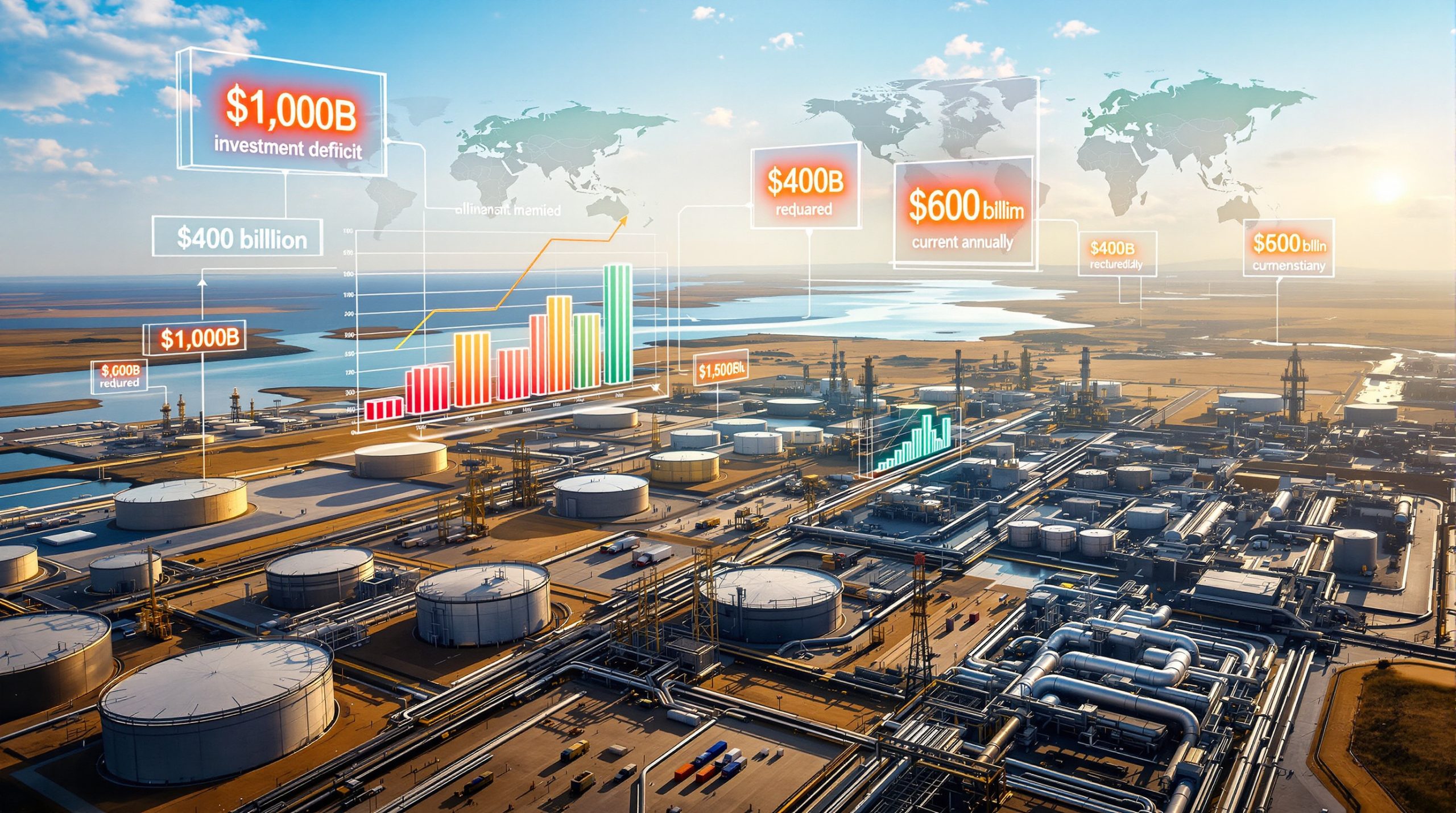LG-led Consortium Withdraws from $7.7B Indonesia Battery Project
In a significant move impacting global battery supply chains, a consortium led by South Korean battery giant LG Energy Solution has announced its withdrawal from an $7.7 billion battery project in Indonesia. The decision, announced on April 18, 2025, marks a strategic pivot in the electric vehicle battery manufacturing landscape and raises questions about Indonesia's future role in the global battery minerals challenge.
The Withdrawal Decision
Consortium Partners and Investment Scale
The consortium, featuring prominent South Korean firms LG Energy Solution, LG Chem, and LX International alongside other partners, had committed to a massive investment valued at approximately 11 trillion won ($7.7 billion). This integrated battery production facility was positioned as a cornerstone of Indonesia's strategy to move up the value chain in battery manufacturing.
The project's scale reflected Indonesia's ambitious plans to leverage its natural resources for high-value industrial development. LG Energy Solution, as the primary consortium member, had expected to establish a significant footprint in Southeast Asia's emerging battery production ecosystem.
Official Reasoning Behind Withdrawal
In their official announcement, the LG-led consortium cited changing market conditions as the primary driver behind their decision. "After careful consideration of the evolving global EV market landscape, we have determined this specific project no longer aligns with our strategic priorities," stated an LG Energy Solution spokesperson in a press release.
Industry analysts have linked this decision to what's being termed the "EV chasm" – a temporary but significant slowdown in global electric vehicle demand growth that has prompted manufacturers to reassess their expansion plans. The consortium reportedly made this decision after extensive feasibility study insights and consultation with Indonesian government officials, highlighting the collaborative approach to managing this significant project change.
Indonesia's Strategic Battery Position
Indonesia's Role in Global Battery Supply Chain
Indonesia holds a commanding position in the global battery materials supply chain as the world's largest producer of nickel – a critical component in lithium-ion battery cathodes. The country accounts for approximately 37% of global nickel production, giving it significant leverage in battery material markets.
The Indonesian government has implemented a strategic resource nationalism policy, banning exports of unprocessed nickel ore since 2020 to encourage domestic processing and manufacturing. This policy has successfully attracted several international partnerships aiming to establish processing facilities in-country, including agreements with Chinese battery manufacturers and mining companies.
Original Project Scope and Vision
The now-suspended LG consortium project represented an ambitious effort to develop a comprehensive end-to-end EV battery supply chain in Indonesia. The integrated facility would have included operations spanning from raw material processing to finished battery cell production.
Specifically, the project planned to construct facilities for manufacturing precursor materials (chemical compounds containing nickel, manganese, and cobalt) and cathode active materials – the highest-value components in battery production. These facilities would have created thousands of jobs and positioned Indonesia as a regional leader in advanced manufacturing.
Impact on Regional Battery Manufacturing
Continuing LG Operations in Indonesia
Despite this major project withdrawal, LG Energy Solution clarified that their existing operations in Indonesia will continue unaffected. Most notably, the Hyundai LG Indonesia Green Power battery plant, a joint venture with Hyundai Motor Group established in 2022, will maintain its production schedule.
"Our commitment to Indonesia remains strong through our established operations," noted the LG spokesperson. "We are taking a more selective approach to investments in the current market environment, focusing on facilities with immediate production potential rather than longer-term development projects."
Broader Implications for Asian Battery Production
The withdrawal signals shifting dynamics in the regional competition for battery manufacturing dominance. Countries including Thailand, Vietnam, and Malaysia have been actively courting battery and EV investments with competitive incentive packages.
China continues to dominate the Asian battery landscape, with CATL and BYD expanding production capacity despite market headwinds. Simultaneously, Japanese and Korean manufacturers are pursuing strategies for diversifying critical minerals supply chains, establishing production facilities closer to end markets in Europe and North America to reduce geopolitical risks and capitalize on regional incentives.
EV Market Dynamics Affecting Battery Investments
Understanding the "EV Chasm"
The "EV chasm" represents a temporary plateau in electric vehicle adoption rates following years of exponential growth. This phenomenon reflects several concurrent market challenges, including inflation's impact on consumer purchasing power, persistent charging infrastructure gaps, and policy uncertainty in key markets.
Global EV sales growth slowed to 11% in 2024, down from 35% in 2023, according to industry data. This deceleration has prompted automakers and suppliers to recalibrate their capacity expansion plans, with many pushing back gigafactory projects by 12-24 months to better align with realistic demand forecasts.
Global Battery Investment Trends
Battery manufacturers worldwide are reassessing their investment strategies in response to these market shifts. Total announced capital expenditure for new battery plants declined by 26% in 2024 compared to 2023, reflecting more cautious approaches to capacity expansion.
Strategic priorities have shifted toward regional diversification of supply chains, with manufacturers establishing production facilities across multiple continents to mitigate geopolitical risks and qualify for local incentives. Simultaneously, investments are flowing toward next-generation technologies including solid-state batteries and sodium-ion alternatives that may reduce dependency on critical minerals like nickel and cobalt.
What Does This Mean for Global Battery Supply?
Supply Chain Implications
The withdrawal of the LG consortium from Indonesia could potentially disrupt projected nickel processing capacity, particularly for battery-grade materials. Indonesia has invested heavily in developing high-pressure acid leaching (HPAL) facilities to convert its abundant low-grade nickel into battery-suitable products, but questions remain about the quality consistency and environmental impact of these operations.
Industry experts project that global commodities insights will continue to show battery material supply chains diversifying geographically, with increased processing capacity developing in Australia, Canada, and European countries seeking to reduce dependency on Asian supply chains. The nickel market specifically may experience price volatility as Indonesian production volumes adjust to reflect revised demand projections.
Future Outlook for Indonesian Battery Projects
Despite this setback, Indonesia maintains significant advantages in the battery materials sector, including unmatched nickel reserves, supportive government policies, and established processing infrastructure. Industry observers suggest the country could pivot toward partnerships with Chinese manufacturers, who continue expanding production capacity despite market headwinds.
"Indonesia remains a critical player in battery material supply chains regardless of this single project cancellation," notes minerals analyst Sarah Chen at Battery Intelligence Group. "The underlying competitive advantages of Indonesian nickel production haven't changed, but the timeline and partners for value chain development may evolve."
Several alternative investment scenarios remain viable for Indonesia's battery sector, including potential partnerships with Chinese battery giants like CATL or EVE Energy, or renewed interest from Western manufacturers once EV demand growth recovers from its current plateau. For investors interested in the sector, following a comprehensive mining stocks guide can help navigate these changing market dynamics.
FAQ About the LG Consortium Withdrawal
Why did the LG consortium withdraw from the Indonesian battery project?
The consortium cited changing market conditions and a temporary slowdown in EV demand growth (the "EV chasm") as primary factors. Strategic reassessment of capital allocation priorities led to focusing on projects with near-term production potential rather than longer-term development initiatives.
Will this withdrawal affect global EV battery supplies?
The immediate impact on global battery supply will be minimal, as many manufacturers have adjusted production plans to align with revised demand forecasts. Long-term, the withdrawal may delay Indonesia's move up the battery value chain but is unlikely to create supply shortages.
What other battery projects are still active in Indonesia?
Several major projects continue advancing in Indonesia, including the operational Hyundai LG Indonesia Green Power battery plant and multiple Chinese-backed processing facilities. QMB New Energy Materials, a joint venture including GEM Co. and CATL, maintains its nickel processing operations focused on battery materials.
How does this decision reflect broader EV market trends?
This withdrawal aligns with industry-wide recalibration of expansion plans in response to slowing EV adoption growth rates. Manufacturers are prioritizing capital efficiency and regional diversification while delaying some capacity additions until demand visibility improves.
What alternatives might Indonesia pursue for battery manufacturing?
Indonesia could strengthen partnerships with Chinese manufacturers who maintain aggressive expansion plans, revisit discussions with other Korean or Japanese battery makers, or develop domestic capabilities through state-owned enterprises. The country's fundamental advantage in nickel resources ensures ongoing interest from the battery industry despite this specific project cancellation.
Ready to Stay Ahead of Mining Investment Opportunities?
Discover how major mineral announcements can lead to exceptional market returns by exploring Discovery Alert's proprietary Discovery IQ model, which delivers real-time notifications on significant ASX mineral discoveries. Visit the dedicated discoveries page today to start your 30-day free trial and position yourself ahead of the market.
